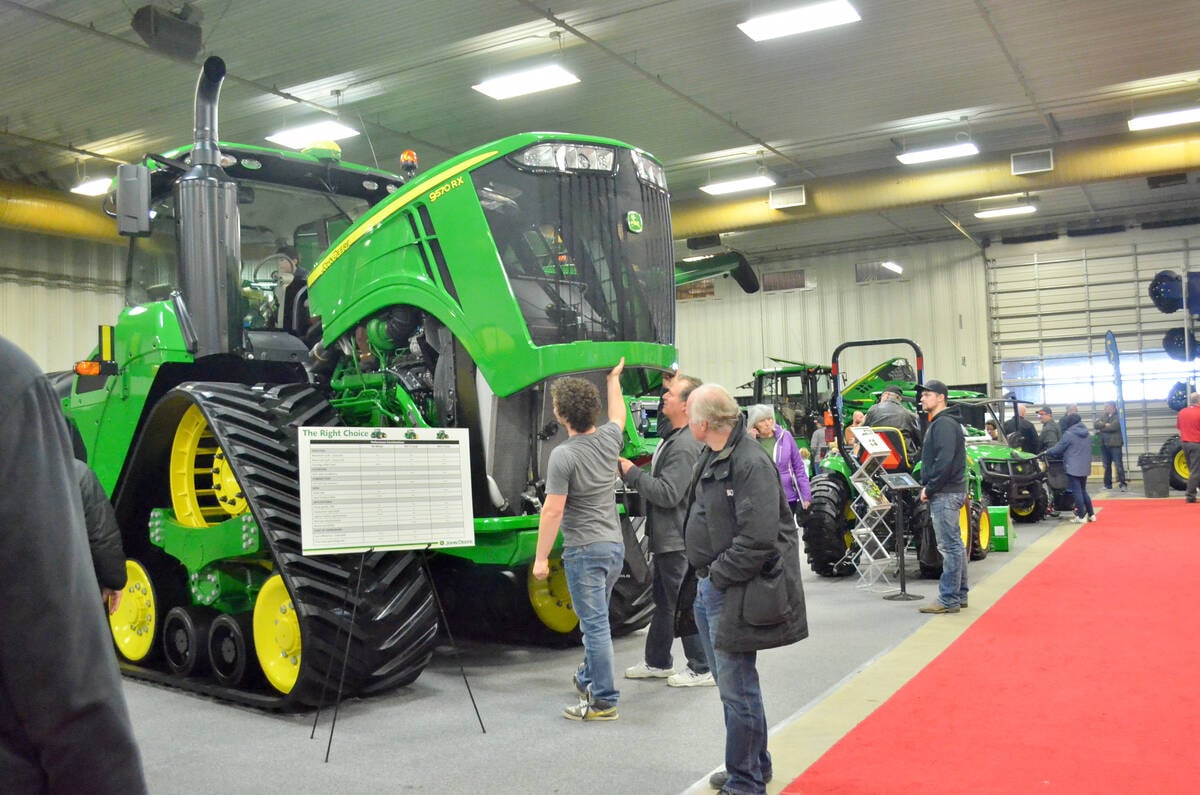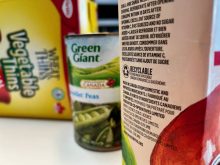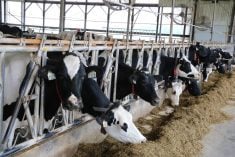Residents of Winnipeg’s St. Vital neighbourhood are digesting the results of a newly released study that reflects what matters to them about food.
The Winnipeg suburb is one of several sites in Manitoba to undergo community food assessments in recent months, an initiative to better understand where residents buy or access food, if they grow any of it themselves, and what their connections may be to surrounding farms.
The assessment is the latest effort of an organization that first emerged five years ago, an ad hoc organization calling itself the Manitoba Food Charter, which in 2007 produced what became the first provincial charter in Canada to set out a grassroots vision for a new and improved “food system.”
Read Also

The sneak peek of Manitoba Ag Days 2026
Canada’s largest indoor farm show, Manitoba Ag Days, returns to Brandon’s Keystone Centre Jan. 20-22, 2026. Here’s what to expect this year.
The charter project has since evolved into Food Matters Manitoba (FMM), a registered charity that employs a small staff with funding from the federal Rural Secretariat and the province of Manitoba.
“The charter process was a way to get people talking about what we’d like to see happen, says Kreesta Doucette, executive director of Food Matters Manitoba (FMM), who led the charter development process and today heads up FMM’s team of 10.
“But a vision is only as useful as the steps taken to achieve it.”
In addition to hosting its annual Growing Local February conference in Winnipeg, the FMM has also been a catalyst for initiatives such as a Farm to Cafeteria program boosting the offering of local food in over 260 Manitoba schools and helped advance the Northern Healthy Food Initiative in Manitoba’s north.
Expanding conversation
Five years since emerging as an unknown, FMM now has plenty on its plate. The expanding interest and public conversation around food security continues to astonish Doucette. Its office is inundated with continuous calls and inquiries.
“Every year we think this can’t get bigger and we’re still seeing huge interest,” she said.
But even as projects abound and public interest in food issues show no signs of abating, food security planning remains something of an orphan on the provincial policy front.
Manitoba has no specific food security policy that would bring some symbiosis into the bigger picture, said Doucette. Winnipeg also has no food policy council, unlike several other cities across Canada.
“I think we’re getting closer to that,” said Doucette.“But what we have right now is an interesting situation where a lot of things are happening, but we don’t have policy to support or frame it.”
It’s complicated
Part of the problem their ideas have in getting traction among bureaucrats and political leaders is the holistic package they come in. Food matters crosses sectoral boundaries of health, agriculture, the environment and urban design.
It’s not as though there isn’t interest in having those discussions. Provincial parties in the last election all came forward with platforms around food security during last October’s elections in an I Vote Because Food Matters forum hosted by FMM.
“We’ve seen some great interest in the provincial election,” said Doucette. “And we’ve seen huge and growing interest from the public,” she said.
But proposing more transformative changes, not only in how we plan but what we plan for isn’t easy.
“When we start talking about interdepartmental work in (government departments of) Health and Agriculture and the Environment a lot of people just shut down and say it’s too complicated,” she said. “I think we need to address the fact that it is complicated but that’s also possibly where some of the solutions lie.”
New interest
Winnipeg is showing interest in food system planning. In 2009 during its Speak Up Winnipeg consultations for creating a long-term development plan, city planners held roundtables to hear citizens’ ideas on everything from whether the city should set aside land for community gardening and urban farms to food waste management and composting.
Stefan Epp-Koop, a policy analyst at FMM, says there are many examples of what municipalities can achieve by taking a more holistic approach to planning, pointing to the role the City of Saskatoon played in creating the city’s year-round indoor farmers’ market and Edmonton’s more recent work to develop “agri-hoods,” or community gardens and urban farms inside city limits.
“In the past, cities have looked at food as someone else’s responsibility,” he said. “But I think that there’s a growing awareness of what the city can do around food and food policy. Cities can play a really active role in promoting food at both the economic and social and community levels.”
Epp-Koop said places outside Winnipeg are actually ahead of the curve on some fronts such as composting. Winnipeg has no such program and is probably a long way away from it, yet other smaller centres in Manitoba, such Winkler, Carman, Altona and Steinbach have programs. Composting is a huge component of bigger-picture planning for food security, because it’s a way of recycling vast volumes of soil nutrients, said Epp-Koop.
“Composting is about what you do with food when you’re done with it,” he said.
More diversity needed
Doucette says what FMM ultimately wants to see is more diversity in the current food system.
That’s what’s behind their “local and sustainable” mantra calling for more planning for urban agriculture and community gardening, the creation of more cooking classes and how-to-compost seminars, and their support for new farm entrant programs and closer-to-home food procurement policies in institutions.
Manitoba often boasts that its diverse economy makes it resilient and stable in difficult times, said Doucette.
“I think that planning for a more diverse food system will result in a much more sustainable food system in the long run,” she said.
“The time to begin that planning is now.”















